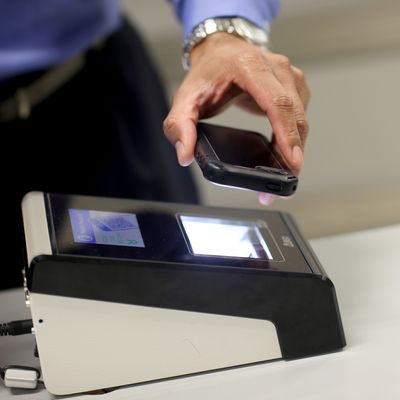
The Trump administration recognizes that some things are more important than public safety. Sure, the government could do everything in its power to maximize the physical security of its citizens — but doing so would turn the United States into an open-air prison.
The White House knows Americans would never accept that. The people of this country are willing to take on a bit of risk for the sweet gift of liberty. And so, Trump has refused to listen to the worrywarts, and sacrifice the god-given right of coal companies to dump mining waste in streams; or of the severely mentally ill to buy firearms; or of Dow Chemical to sell pesticides linked to fetal abnormalities.
And while nearly 5,000 workers die on the job in the United States each year, Trump knows that those deceased workers would hate if their untimely deaths were used as an excuse to abrogate the sacred right of companies that routinely violate workplace safety standards to receive lucrative federal contracts.
Still, the White House understands that some threats are so severe, they require a few, carefully tailored restrictions on liberty. For example, foreign-born terrorists killed 24 people on U.S. soil between September 12, 2001, and December 31, 2015. Americans know that’s far too many. They may be willing to let thousands of their compatriots die on shop floors each year, for the sake of minimizing the regulatory burden on job creators, but they’ll be damned if they let 1.7 Americans get murdered by jihadists on an annual basis: It’s one thing to be slain by poorly maintained machinery — it’s quite another to be felled by a foreign Muslim.
And so, the Trump administration is considering a few limited measures to mitigate the latter threat, as The Wall Street Journal reports:
Foreigners who want to visit the U.S., even for a short trip, could be forced to disclose contacts on their mobile phones, social-media passwords and financial records, and to answer probing questions about their ideology, according to Trump administration officials conducting a review of vetting procedures. The administration also wants to subject more visa applicants to intense security reviews and have embassies spend more time interviewing each applicant. The changes could apply to people from all over the world, including allies like France and Germany.
… The changes would be sure to generate significant controversy, both at home, from civil libertarians and others who see the questions as overly intrusive, and abroad, with experts warning that other nations could impose similar requirements on Americans seeking visas.
Right now, Americans have a 1 in 45,808 lifetime chance of being murdered by a foreign-born terrorist. Clearly, we must get that number down, even if it means devastating our own tourism industry, degrading our international image, and forcing customs agents to sift through the Twitter DMs, Facebook messages, and decade-old LiveJournal posts of every Muslim who wants to bring her medical expertise to an understaffed rural hospital.
Granted, there’s no actual evidence that such “extreme vetting” would achieve its official goal. Although the Department of Homeland Security has run pilot programs on social-media screening, it didn’t properly measure the efficacy of those programs, according to a DHS inspector general’s report. It also seems possible that, once the new rules become public knowledge, an especially savvy ISIS militant might decide to delete her social-media accounts, buy a new phone, and decline to disclose in an ideological test that she wishes to rid the planet of infidels in a cleansing rain.
Then again, it would be pretty hard for a terrorist to discern what the “right” answer to these questions are:
The DHS official working on the review said the types of questions under consideration now include whether visa applicants believe in so-called honor killings, how they view the treatment of women in society, whether they value the “sanctity of human life” and who they view as a legitimate target in a military operation. [my emphasis]
After all, if the terrorists tried to model their answers on the American president’s example, they might say that in society, stars should be allowed to grab women by the pussy — and, in legitimate military operations, “you have to take out their families: When you get these terrorists, you have to take out their families.”
Finding the right balance between protecting national security and preserving civil liberties is a challenge for any government. But the White House seems to have found it. President Trump has made America safe again — while keeping it the land of the brave and the home of the free. You might want to tweet that, just in case you ever want to leave America and be allowed back in.






























